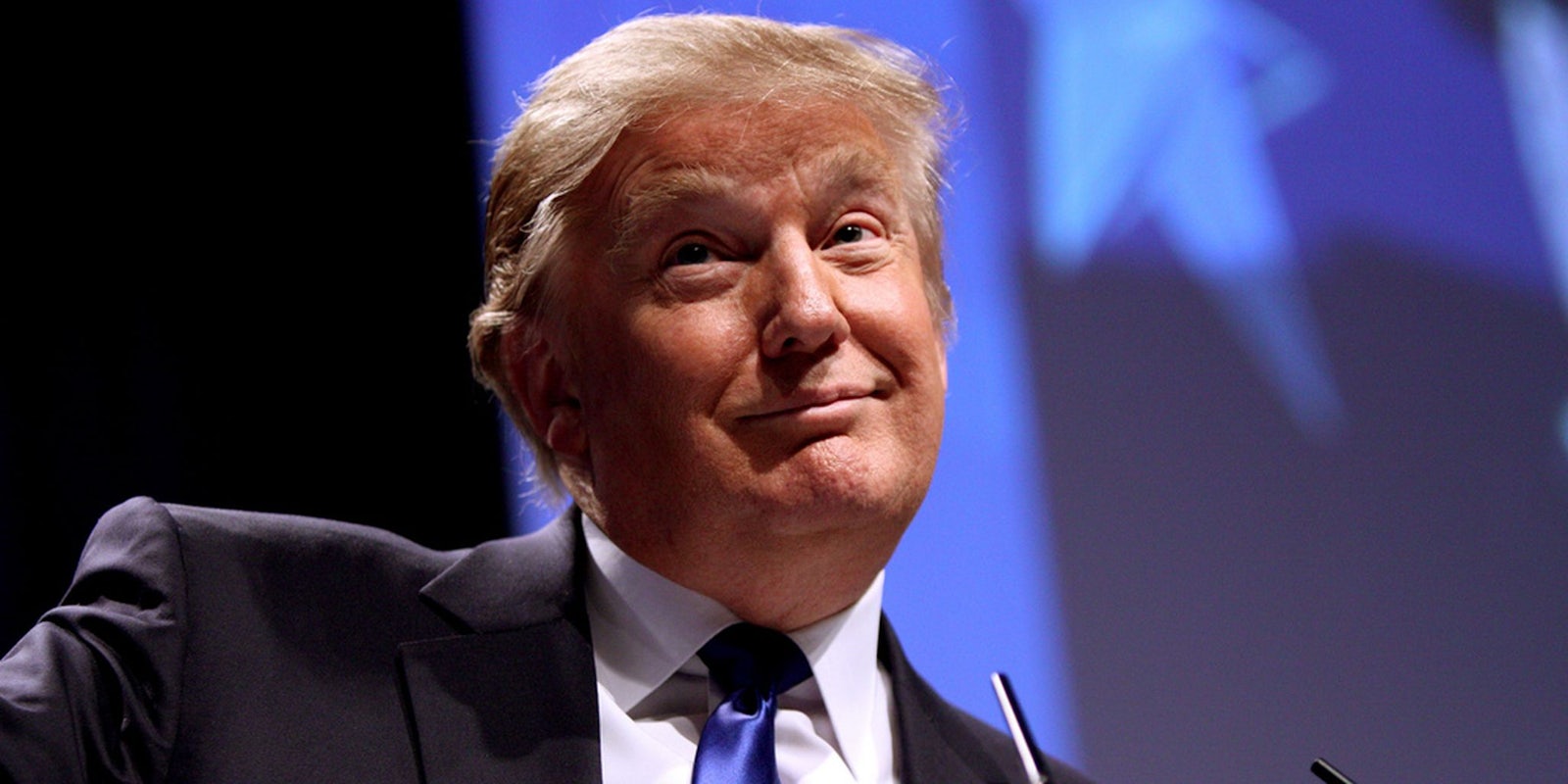Since Donald Trump announced his presidential bid in June 2015, he’s been consistently anti-abortion. This is despite previously identifying publically as pro-choice in his book on public policy, The America We Deserve, as well on NBC’s Meet the Press. One of the cornerstones of Trump’s campaign included repealing Obamacare and defunding Planned Parenthood, which could not only leave people without abortion access but could restrict millions from getting basic contraceptive or reproductive care at an affordable price.
In the wake of his election, many are concerned that Trump’s administration will overturn Roe v. Wade. But is that even possible?
Where Trump and his administration stand on abortion
Despite what initially seemed like an inconsistent stance to pander to his religious-right voter base, Trump told Leslie Stahl in a 60 Minutes post-election interview that he would approve pro-life judges and Roe v. Wade would “go back to the states” if it were overturned. Vice president-elect Mike Pence has been voting to ban abortion access to varying degrees since 2001, saying in 2012, “The largest abortion provider in America should not also be the largest recipient of federal funding under Title X.”
But the president-elect and vice president-elect aren’t the only people in the administration to demonstrate anti-abortion views. Trump’s Health and Human Services Secretary appointment, Georgia Republican Tom Price, has voted to ban federal funding to abortion providers, and in his new role, he Price will be in charge of the majority of federal funding for Planned Parenthood. Ben Carson, his Housing and Urban Development secretary, said last year he would “love to see Roe v. Wade overturned,” and incoming Attorney General Jeff Sessions voted to criminalize abortion, stem-cell research, and federal funding for organizations that perform abortions.
How can a Supreme Court case be overturned?
In 1973, Roe v. Wade ruled that the constitutional right to privacy extended to abortion, and a woman should have a right to decide whether to terminate her pregnancy. Because abortion was outlawed in most states at the time, except in certain life-saving cases for the person pregnant, the decision was able to make abortion safe and legal across the United States. As a result, the number of people who died from abortions plummeted from 17 percent to less than one percent, and the health and lives of families improved.
There are two main ways to overturn Supreme Court decisions. First, the Supreme Court can overrule itself when a different case addressing the same constitutional issue is brought before the court. Plessy v. Ferguson, for example, was overturned by Brown v. Board of Education, which ended the “separate but equal” segregation laws for public schools in the U.S.
The second and less common way allows for states to amend the Constitution themselves. This requires cooperation from three-fourths of the state legislators in the country and was how Prohibition was repealed in 1933.
Will Trump’s administration overturn Roe v. Wade?
Overturning a Supreme Court case is difficult, especially one like Roe v. Wade, which has been unsuccessfully challenged multiple times and survived both Republican and Democratic administrations, including one under Ronald Regan, who actively believed his Supreme Court picks would overturn it. It would take another case addressing abortion to go through lower courts and make it to the Supreme Court, and even if Trump appointed an anti-abortion justice, it wouldn’t necessarily tip the makeup of the court in his favor.
Given that 19 states enacted pro-choice measures in 2015, the second option of getting three-fourth of state legislators onboard to overturn a woman’s right to choose seems even more unlikely.
TL;DR
Though Trump and many in his administration have consistently pushed agendas to overturn a woman’s right to terminate her pregnancy, there’s not much legislative action Congress can take to completely reverse Roe v. Wade. However, legislators in D.C. do have the power to restrict access to abortion and other reproductive care, and states are permitted to disfavor abortion and punish people seeking abortions with laws that make it legal to harass them. States can also restrict abortion coverage and target abortion providers.
Even if Roe v. Wade isn’t overturned, many Americans could start seeing more barriers when it comes to abortion, like state bans on procedures done after 20 weeks of pregnancy.


